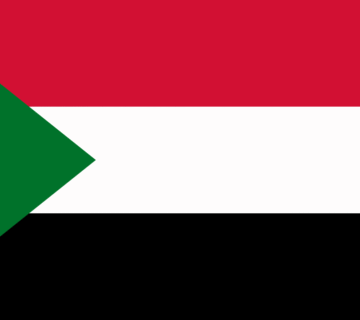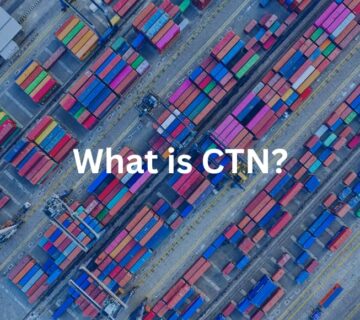What's in the Article?
- What is an ECTN?
- Why ECTNs are Crucial for International Trade
- Enhancing Security and Compliance
- Streamlining Customs Procedures
- Reducing Administrative Burden
- The Role of GlobalCTN in ECTN Compliance
- Expertise in African Trade Regulations
- Tailored Services for Your Needs
- 24/7 Customer Support
- ECTN Requirements by Country
- Algeria ECTN
- Angola CNCA / ARCCLA
- Benin BESC
- Other Countries
- The Process of Obtaining an ECTN
- Simple and Efficient Application
- Continuous Support and Guidance
- Conclusion: Facilitating Trade in Africa
What is an ECTN?
An Electronic Cargo Tracking Note (ECTN) is an essential document required by many African countries for the transportation of goods. The ECTN ensures that all necessary information about the cargo, shipper, and consignee is available to customs authorities, facilitating the smooth and efficient movement of goods across borders. This system is designed to enhance security, transparency, and efficiency in international trade.
Why ECTNs are Crucial for International Trade
Enhancing Security and Compliance
One of the primary reasons ECTNs are mandatory in many African countries is to enhance security and compliance. By requiring detailed information about each shipment, customs authorities can monitor and track cargo more effectively. This helps in reducing illegal activities such as smuggling and ensures that all trade practices comply with national and international regulations.
Streamlining Customs Procedures
ECTNs play a vital role in streamlining customs procedures. By providing a standardized set of data for each shipment, the customs clearance process becomes more straightforward and less time-consuming. This leads to faster processing times at ports and borders, reducing delays and improving overall efficiency in the supply chain.
Reducing Administrative Burden
For shippers and freight forwarders, the requirement for ECTNs can initially seem like an additional administrative burden. However, in the long run, it reduces paperwork and manual processes by digitizing the information flow. This not only saves time but also minimizes errors that can occur with manual documentation.
The Role of GlobalCTN in ECTN Compliance
Expertise in African Trade Regulations
GlobalCTN is a leading provider of ECTN certificates, specializing in assisting clients with compliance across more than 30 African countries. Our team has in-depth knowledge of the specific requirements and regulations of each country, ensuring that our clients can navigate the complexities of African trade smoothly.
Tailored Services for Your Needs
We understand that each shipment and client has unique needs. Therefore, we offer tailored services to meet these specific requirements. Whether you are shipping by sea, air, or land, GlobalCTN provides comprehensive solutions to ensure that your cargo complies with all necessary regulations and reaches its destination without unnecessary delays.
24/7 Customer Support
Our commitment to excellence includes providing round-the-clock customer support. Our team is always available to answer any questions, assist with documentation, and ensure that your ECTN application process is as smooth as possible. We are dedicated to making the compliance process hassle-free for our clients.
ECTN Requirements by Country
Algeria ECTN
For shipments to Algeria, an ECTN is required. This document must be obtained before the cargo arrives at the Algerian port, ensuring that all necessary information is available to customs authorities in advance.
Angola CNCA / ARCCLA
In Angola, the CNCA (Conselho Nacional de Carregadores de Angola) or ARCCLA (Agência Reguladora de Certificação de Cargas e Logística de Angola) certificate is mandatory for all shipments. This ensures that cargo details are accurately recorded and monitored.
Benin BESC
Benin requires a BESC (Bordereau Électronique de Suivi des Cargaisons) for all imports. This document helps streamline customs procedures and enhances the efficiency of cargo tracking.
Other Countries
GlobalCTN provides ECTN services for numerous other African countries, including Burkina Faso, Burundi, Cameroon, Central African Republic, Chad, Democratic Republic of the Congo, Republic of the Congo, Djibouti, Egypt, Equatorial Guinea, Gabon, The Gambia, Ghana, Guinea Bissau, Guinea Conakry, Ivory Coast, Liberia, Libya, Madagascar, Mali, Niger, Nigeria, Senegal, Sierra Leone, Somalia, South Sudan, and Togo. Each country has specific requirements and procedures, which our team of experts can help you navigate.
The Process of Obtaining an ECTN
Simple and Efficient Application
Obtaining an ECTN through GlobalCTN is straightforward and efficient. Our team will guide you through each step, from gathering the necessary documentation to submitting the application and obtaining the certificate. We ensure that all required information is accurately provided, reducing the risk of delays or rejections.
Continuous Support and Guidance
Our customer support team is available around the clock to assist with any issues or questions that may arise during the process. Whether you need help with documentation, submission, or compliance questions, we are here to support you every step of the way.
Conclusion: Facilitating Trade in Africa
The importance of ECTNs in facilitating trade in Africa cannot be overstated. These documents are crucial for ensuring compliance with local regulations, enhancing security, and streamlining customs procedures. At GlobalCTN, we are dedicated to helping our clients navigate the complexities of African trade, providing expert solutions and continuous support. Contact us today to learn more about how we can assist you with your ECTN needs and ensure the smooth transportation of your goods across the African continent.






